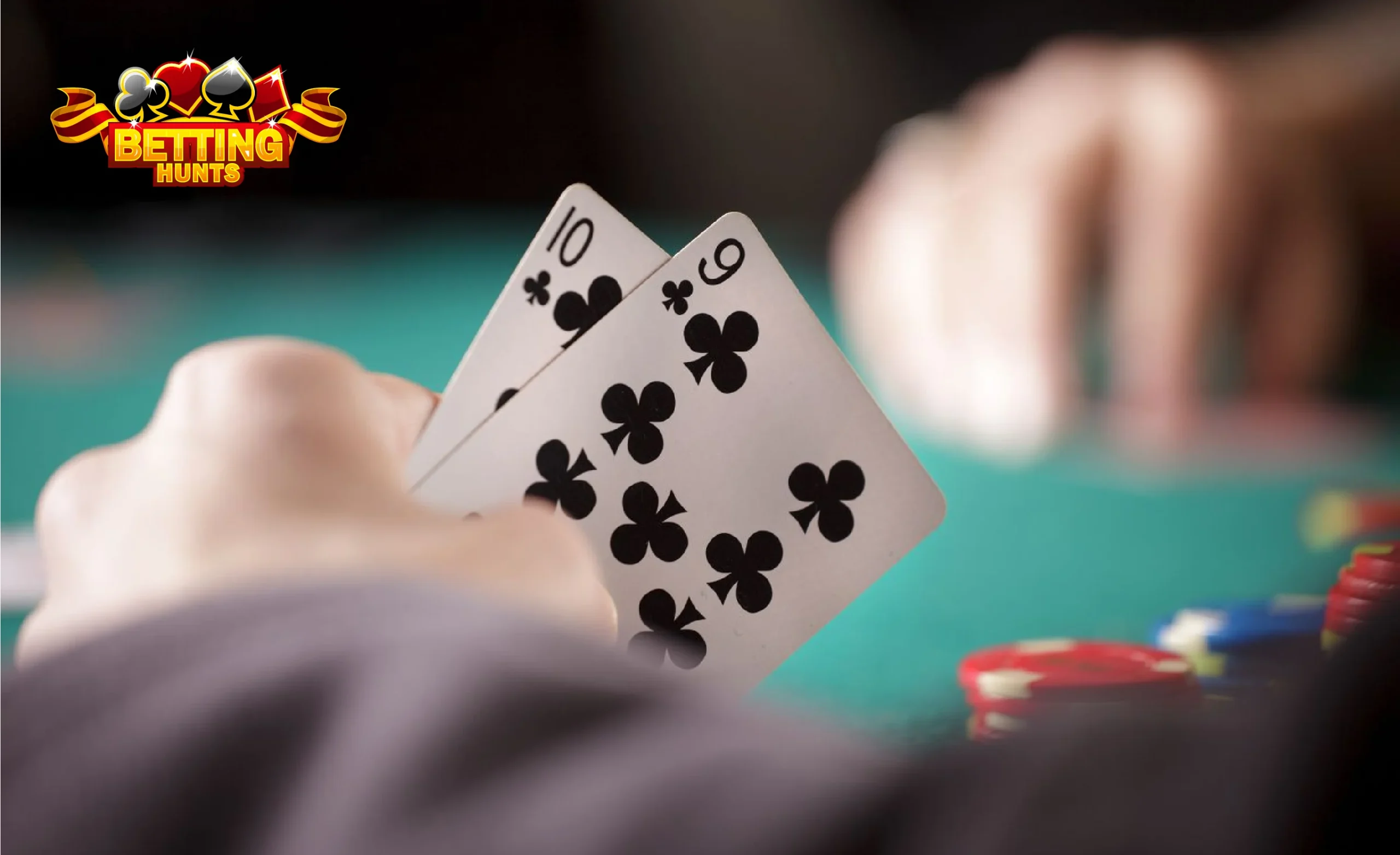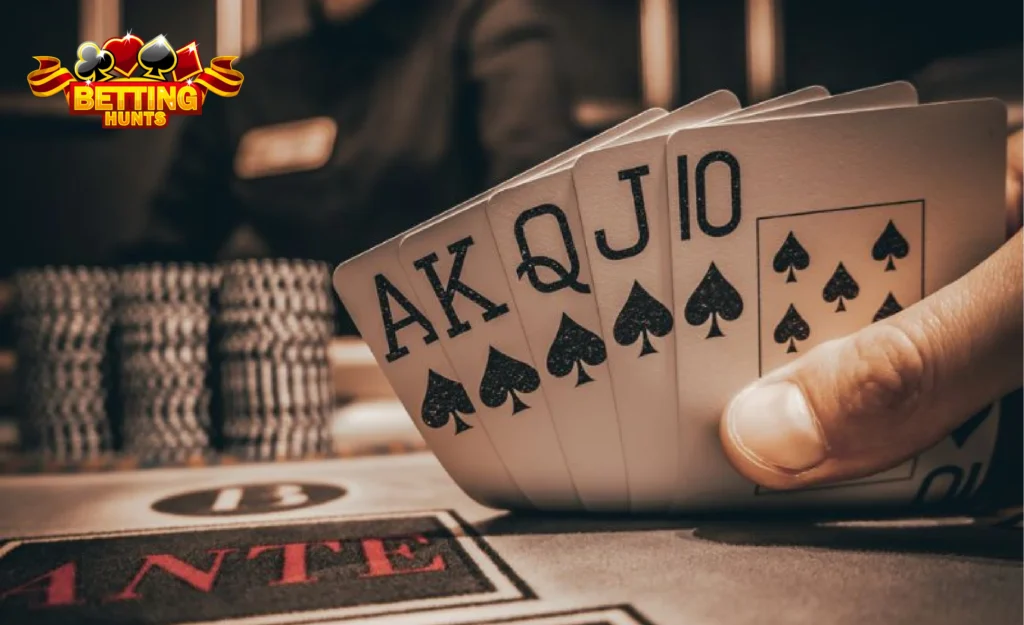Betting Recklessly in Poker Slang: How to Avoid Going All-In Too Often

Introduction
Ever found yourself caught up in the thrill of a poker game, only to realize you’re betting recklessly in poker slang? You’re not alone. Many poker players and gambling enthusiasts have faced the consequences of reckless betting, which can lead to significant losses. This blog post aims to help you understand the concept of betting recklessly in poker slang, its implications, and how to avoid making costly mistakes. Whether you’re a seasoned player or new to the game, you’ll find valuable insights and practical tips to enhance your poker strategy.
Understanding Betting Recklessly in Poker Slang
What Does It Mean?
In poker slang, betting recklessly refers to making bets without much thought or strategy. This often involves placing large bets impulsively, ignoring the odds, and failing to consider the potential outcomes. The term captures the essence of playing with abandon without carefully evaluating risks and rewards.
Common Examples
Reckless betting can manifest in various ways during a poker game. For instance, going all-in with a weak hand, raising without considering your opponents’ moves, or consistently betting high to bluff can all be seen as forms of reckless betting. Each of these actions can jeopardize your stack and position in the game.
Why Players Bet Recklessly
Several factors can lead players to bet recklessly. These include emotional triggers such as frustration, excitement, or overconfidence. Additionally, a lack of experience or understanding of the game can contribute to impulsive betting. Recognizing these triggers is the first step toward better decision-making.
The Risks of Reckless Betting
Financial Losses
One of the most immediate risks of betting recklessly is financial loss. Large, impulsive bets can quickly deplete your stack, leaving you with fewer opportunities to recover. In many cases, reckless decisions make players leave the game sooner than expected.
Damage to Reputation
In the world of poker, your reputation matters. Consistently betting recklessly can earn you a reputation as an unpredictable and unreliable player. This can influence how other players perceive and respond to you, making it harder to execute strategic moves.
Psychological Impact
The psychological toll of reckless betting cannot be overlooked. Constantly losing due to poor decisions can lead to frustration, anxiety, and a diminished sense of confidence in your abilities. Over time, this can affect your overall enjoyment of the game and willingness to participate.

Recognizing the Signs of Reckless Betting
Frequent All-Ins
Going all-in too often is a clear sign of reckless betting. While this move can be strategic in certain situations, using it as a go-to tactic without evaluating your hand and the table dynamics is a recipe for disaster.
Ignoring Odds and Probabilities
Successful poker players consider the odds and probabilities before making a bet. If you consistently ignore these factors and rely on gut feelings, you’re likely betting recklessly. Understanding and calculating odds can significantly improve your decision-making process.
Overreliance on Bluffs
Bluffing is an integral part of poker, but relying on it excessively can be detrimental. You may be engaging in reckless betting if you’re frequently using bluffs to compensate for weak hands or poor positions. Balancing bluffs with a solid strategy is crucial for long-term success.
Strategies to Avoid Betting Recklessly
Set a Budget
One of the most effective ways to avoid reckless betting is to set a budget before you start playing. Determine how much you’re willing to spend and stick to that amount. This will help you manage your bankroll and prevent impulsive decisions.
Practice Patience
Patience is a virtue in poker. Instead of rushing into bets, take your time to evaluate the situation. Consider the strength of your hand, your opponents’ actions, and the table’s overall dynamics. Making calculated decisions will improve your chances of success.
Learn from Mistakes
Every poker player makes mistakes, but the key is to learn from them. Reflect on your past games and identify instances where you bet recklessly. Analyze what led to those decisions and how you can avoid similar mistakes in the future. Continuous learning is essential for growth.
The Role of Emotion in Poker
Managing Excitement
Poker is an exhilarating game, and getting caught up in the excitement is easy. However, letting your emotions drive your decisions can lead to reckless betting. Practice mindfulness and stay aware of your emotional state during the game. Taking deep breaths and staying composed can help you make more rational choices.
Handling Frustration
Frustration is another common emotion that can influence your betting behavior. Losing a hand or facing a tough opponent can trigger impulsive decisions. Instead of reacting out of frustration, take a step back and reassess your strategy. Keeping a cool head will improve your gameplay.
Building Confidence
Confidence is important, but overconfidence can be dangerous. Believing that you can win every hand or outsmart every player can lead to reckless betting. Maintain a balanced perspective and recognize that poker is a game of skill and chance. Confidence should be grounded in knowledge and experience.

Improving Your Poker Strategy
Study the Game
To avoid reckless betting, invest time in studying the game. Read books, watch tutorials, and learn from experienced players. Understanding the fundamentals and advanced strategies will equip you with the knowledge to make informed decisions.
Analyze Your Play
Regularly analyzing your gameplay is crucial for improvement. Record your sessions, review your hands, and identify patterns in your betting behavior. This self-assessment will help you pinpoint areas for improvement and develop a more disciplined approach.
Seek Feedback
Don’t hesitate to seek feedback from fellow players or mentors. Constructive criticism can provide valuable insights and help you refine your strategy. Engaging with a community of poker enthusiasts can also offer support and motivation.
The Importance of Bankroll Management
Setting Limits
Bankroll management is a key aspect of responsible poker playing. Set limits on how much you’re willing to risk in a session and adhere to those limits. This will prevent you from making impulsive bets that could jeopardize your financial stability.
Diversifying Stakes
Avoid playing at the same stakes all the time. Diversifying your stakes allows you to experience different levels of competition and adjust your strategy accordingly. It also minimizes the risk of significant losses in a single session.
Tracking Performance
Keep track of your wins and losses to understand your performance clearly. This information will help you make informed decisions about your bankroll and adjust your strategy as needed. Regularly reviewing your performance ensures you’re on the right track.
The Role of Discipline in Poker
Sticking to a Plan
Discipline is essential for avoiding reckless betting. Before entering a game, outline a clear plan and strategy. Stick to this plan even when faced with tempting opportunities to deviate. Consistency and discipline are key to long-term success.
Avoiding Tilt
Tilt refers to a state of emotional frustration that leads to poor decision-making. Recognize the signs of tilt and take steps to avoid it. This might involve taking breaks, practicing mindfulness, or seeking support from fellow players.
Maintaining Focus
Distractions can lead to impulsive decisions. Create a conducive environment for playing poker, free from distractions. Stay focused on the game and avoid multitasking. Maintaining concentration will help you make thoughtful and strategic bets.

Building a Winning Mindset
Setting Realistic Goals
Setting realistic goals is important for maintaining a positive mindset. Instead of aiming for immediate wins, focus on long-term improvement and consistency. Celebrate small victories and learn from setbacks.
Visualizing Success
Visualization is a powerful tool for building confidence and motivation. Imagine making successful bets, executing strategic moves, and achieving your goals. Positive visualization can enhance your performance and outlook.
Staying Persistent
Poker is a challenging game, and setbacks are inevitable. Stay persistent and committed to improving your skills. Overcoming challenges and learning from experiences will contribute to your growth as a player.
Seeking Professional Guidance
Hiring a Coach
Consider hiring a poker coach to guide you through your journey. A coach can provide personalized insights, strategies, and feedback tailored to your strengths and weaknesses. Professional guidance can accelerate your progress.
Joining Poker Communities
Engaging with poker communities provides access to valuable resources and support. Participate in forums, attend events, and connect with fellow players. Sharing experiences and learning from others can enhance your understanding of the game.
Attending Workshops
Attend workshops and training sessions to deepen your knowledge and skills. These events offer opportunities to learn from experts, participate in hands-on activities, and gain new perspectives on poker strategy.
Conclusion
Betting recklessly in poker slang is a common pitfall that can hinder your progress as a player. By understanding the risks, recognizing the signs, and implementing effective strategies, you can avoid impulsive decisions and improve your gameplay. Remember that poker is a game of skill, patience, and discipline. Continuously learning, practicing self-awareness, and seeking guidance will help you build a winning mindset and achieve long-term success. Ready to take your poker game to the next level?










